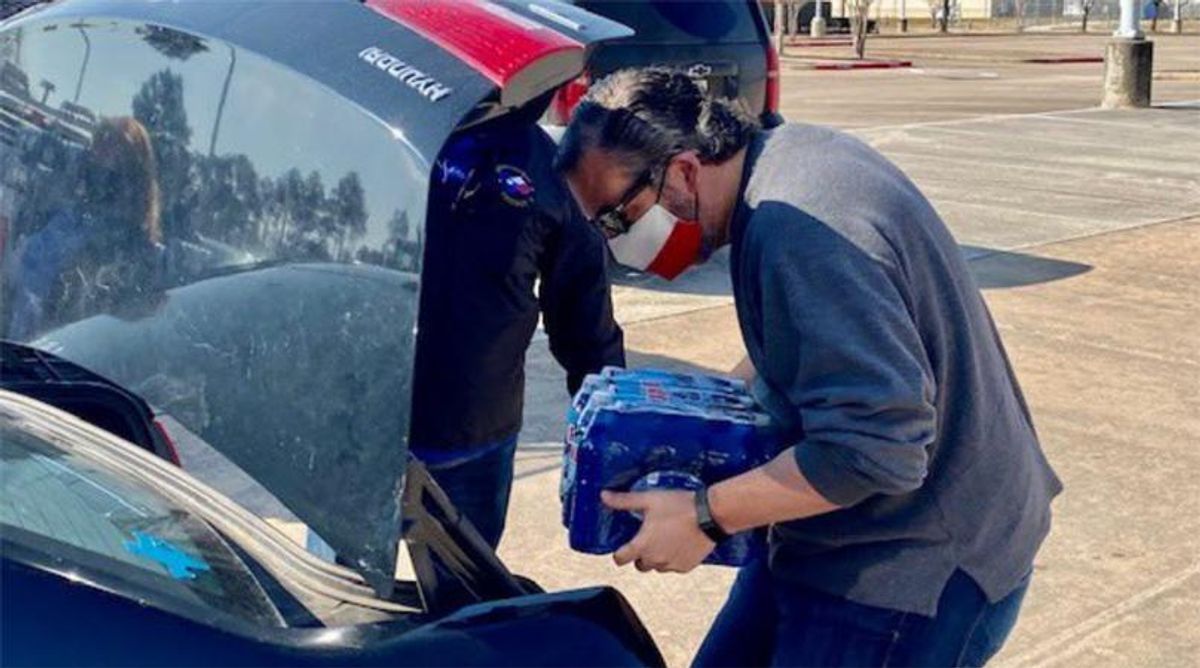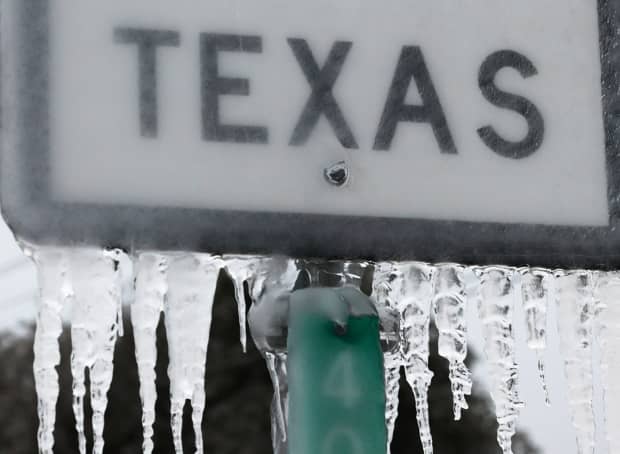PRATT&WHITNEY 4000 ENGINES
Boeing 777 planes grounded by airlines in US and Japan after engine failure
Issued on: 22/02/2021 - 04:41

FILE PHOTO: A United Airlines Boeing 777-200ER plane is towed as an American Airlines Boeing 737 plane departs from O'Hare International Airport in Chicago, Illinois, U.S. Nov. 30, 2018. © Kamil Krzaczynski, Reuters
Boeing Co said it recommended suspending the use of 777 jets with the same type of engine that shed debris over Denver at the weekend after U.S. regulators announced extra inspections and Japan suspended their use while considering further action.
Boeing Co said it recommended suspending the use of 777 jets with the same type of engine that shed debris over Denver at the weekend after U.S. regulators announced extra inspections and Japan suspended their use while considering further action.
The moves involving Pratt & Whitney 4000 engines came after a United Airlines 777 landed safely at Denver International Airport on Saturday local time after its right engine failed.
United said the next day it would voluntarily and temporarily remove its 24 active planes, hours before Boeing's announcement.
Boeing said 69 of the planes were in service and 59 were in storage, at a time when airlines have grounded planes due to a plunge in demand associated with the COVID-19 pandemic.
The manufacturer recommended airlines suspend operations until U.S. regulators identified the appropriate inspection protocol.
The 777-200s and 777-300s affected are older and less fuel efficient than newer models and most operators are phasing them out of their fleets.
Images posted by police in Broomfield, Colorado showed significant plane debris on the ground, including an engine cowling scattered outside a home and what appeared to be other parts in a field.
The National Transportation Safety Board (NTSB) said its initial examination of the plane indicated most of the damage was confined to the right engine, with only minor damage to the airplane.
It said the inlet and casing separated from the engine and two fan blades were fractured, while the remainder of the fan blades exhibited damage.
Japan's transport ministry ordered Japan Airlines Co Ltd (JAL) and ANA Holdings Inc to suspend the use of 777s with P&W4000 engines while it considered whether to take additional measures.
The ministry said that on Dec. 4, 2020, a JAL flight from Naha Airport to Tokyo International Airport returned to the airport due to a malfunction in the left engine about 100 kilometres north of Naha Airport.
That plane was the same age as the 26-year-old United Airlines plane involved in the latest incident.
United is the only U.S. operator of the planes, according to the Federal Aviation Administration (FAA). The other airlines using them are in Japan and South Korea, the U.S. agency said.
"We reviewed all available safety data," the FAA said in a statement. "Based on the initial information, we concluded that the inspection interval should be stepped up for the hollow fan blades that are unique to this model of engine, used solely on Boeing 777 airplanes."
Japan said ANA operated 19 of the type and JAL operated 13 of them, though the airlines said their use had been reduced during the pandemic. JAL said its fleet was due for retirement by March 2022.
Pratt & Whitney, owned by Raytheon Technologies Corp , was not available immediately for comment.
A spokeswoman for South Korea's transport ministry, speaking before Boeing recommended suspending operations, said it was monitoring the situation but had not yet taken any action.
Korean Air Lines Co Ltd said it had 12 of the planes, half of them stored, and it would consult with the manufacturer and regulators and stop flying them to Japan for now.
In Feb. 2018, a 777 of the same age operated by United and bound for Honolulu suffered an engine failure when a cowling fell off about 30 minutes before the plane landed safely. The NTSB determined that incident was the result of a full-length fan blade fracture.
Because of that 2018 incident, Pratt & Whitney reviewed inspection records for all previously inspected PW4000 fan blades, the NTSB said. The FAA in March 2019 issued a directive requiring initial and recurring inspections of the fan blades on the PW4000 engines.
United pulls 24 Boeing 777s; FAA orders inspections after engine failure

The Broomfield Police Department said Sunday that they have been "inundated" with calls concerning debris found throughout the city after a Boeing 777 plane had to make an emergency landing in Denver after suffering engine failure on Saturday. Photo courtesy of the Broomfield Police Department/Facebook
Feb. 21 (UPI) -- United Airlines said Sunday it was temporarily removing 24 of its Boeing 777 aircraft from service a day after one of its flights had to make an emergency landing due to engine failure.
The announcement from United came about an hour after the Federal Aviation Administration said it was increasing inspections of Boeing 777 aircraft, which would "likely mean that some airplanes will be removed from service."
United said via Twitter the planes "voluntarily & temporarily" pulled from service were powered by the same Pratt & Whitney 4000-112 series engine used in the Denver-to-Honolulu Flight 328 on Saturday when engine failure shortly after takeoff caused it to litter debris over the town of Broomfield, Colo., about 32 miles from the Denver airport.
The two-engine plane was forced to return to the Denver airport where no injuries were reported among the 229 passengers and 10 crew members on board.
The Broomfield Police Department said Sunday that it has been "inundated with debris calls" and instructed the public "to only contact us now if they find a large piece of the plane."
United said they are working closely with regulators to determine steps that need to be taken, which should only inconvenience "a small number of customers."
Steve Dickson, the FAA administrator, said the stepped-up inspections should focus on the hollow fan blades unique to the Pratt & Whitney 4000 series engine that is solely used on Boeing 777 aircraft.

The Broomfield Police Department said Sunday that they have been "inundated" with calls concerning debris found throughout the city after a Boeing 777 plane had to make an emergency landing in Denver after suffering engine failure on Saturday. Photo courtesy of the Broomfield Police Department/Facebook
Feb. 21 (UPI) -- United Airlines said Sunday it was temporarily removing 24 of its Boeing 777 aircraft from service a day after one of its flights had to make an emergency landing due to engine failure.
The announcement from United came about an hour after the Federal Aviation Administration said it was increasing inspections of Boeing 777 aircraft, which would "likely mean that some airplanes will be removed from service."
United said via Twitter the planes "voluntarily & temporarily" pulled from service were powered by the same Pratt & Whitney 4000-112 series engine used in the Denver-to-Honolulu Flight 328 on Saturday when engine failure shortly after takeoff caused it to litter debris over the town of Broomfield, Colo., about 32 miles from the Denver airport.
The two-engine plane was forced to return to the Denver airport where no injuries were reported among the 229 passengers and 10 crew members on board.
The Broomfield Police Department said Sunday that it has been "inundated with debris calls" and instructed the public "to only contact us now if they find a large piece of the plane."
United said they are working closely with regulators to determine steps that need to be taken, which should only inconvenience "a small number of customers."
Steve Dickson, the FAA administrator, said the stepped-up inspections should focus on the hollow fan blades unique to the Pratt & Whitney 4000 series engine that is solely used on Boeing 777 aircraft.












